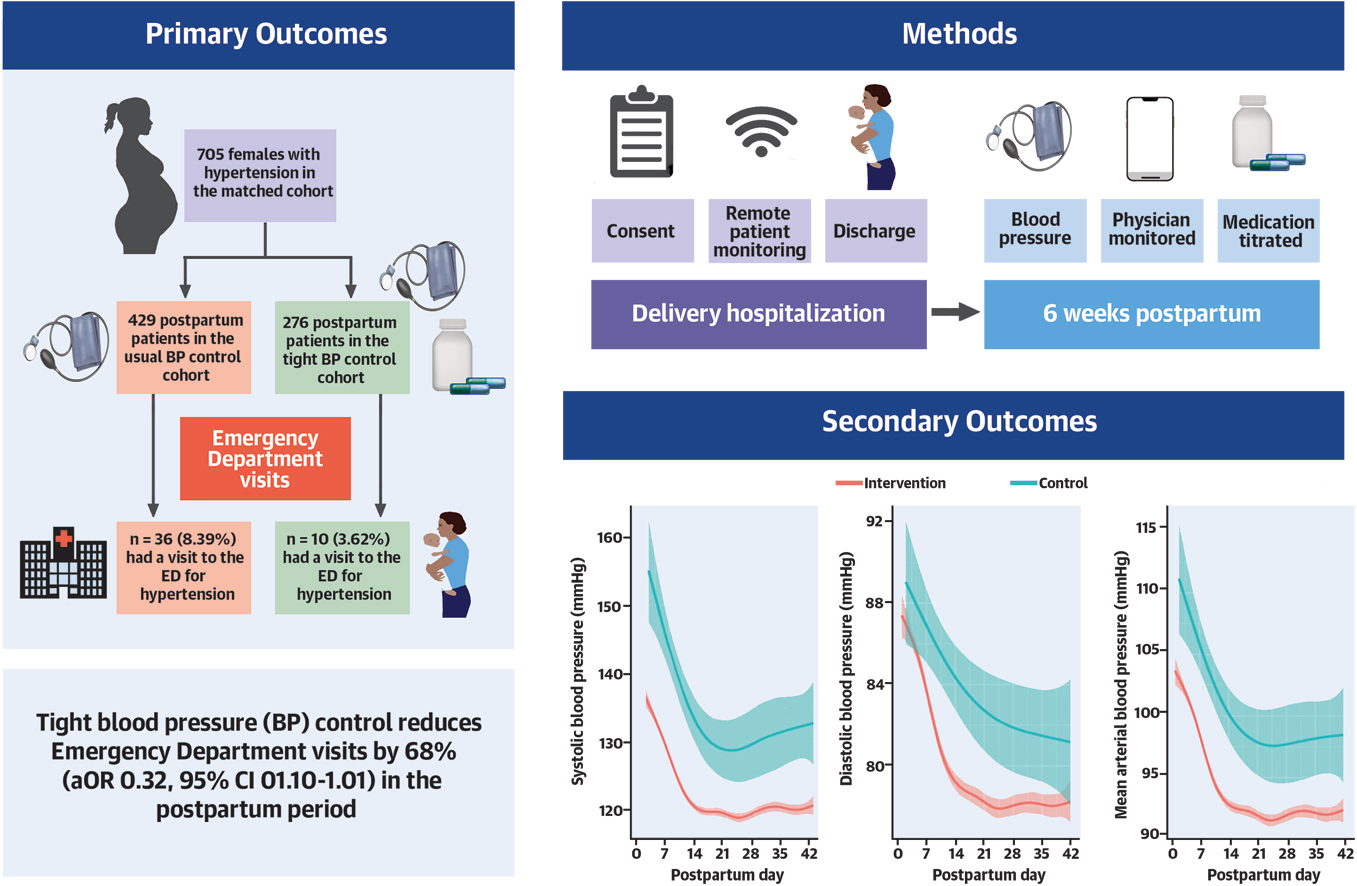Tighter Blood Pressure Control Reduces ED Visits in Postpartum Patients
A lower treatment threshold of ≥130/80 mm Hg was associated with reduced postpartum emergency department (ED) visits for a hypertensive disorder of pregnancy (HDOP), according to a study published in JACC: Advances and simultaneously presented at the Society for Maternal-Fetal Medicine Annual Pregnancy Meeting.
In a multicenter study conducted between March 2023 and March 2024, Emily B. Rosenfeld, DO, et al., recruited 705 patients with hypertension and treated to a blood pressure (BP) ≤130/80 mm Hg using remote BP monitoring. A total of 276 of these postpartum patients were in the tight BP control group (≤130/80 mm Hg) and they were compared with the usual BP group of 429 postpartum patients in a propensity score-matched retrospective cohort from February 2021 to February 2023 treated to maintain a BP ≤150/100 mm Hg. HDOP was defined as chronic hypertension, gestational hypertension or preeclampsia.
Enrollment in the prospective arm was before discharge from their delivery admission, and they were instructed on how to measure their BP and send the results remotely. Those whose BP ≥130/80 mm Hg were treated with either their pre-pregnancy antihypertensive medication or labetalol.
Of the intervention group, 18.8% were taking antihypertensive medication as was 18.2% of the control group. The mean highest BP during pregnancy was 141.8/85.2 mm Hg and 147.8/88.3 mm Hg, respectively.
Results showed that tighter BP control reduced the primary outcome of ED visits by 68% postpartum. Overall, 10 patients (3.6%) in the intervention cohort and 36 patients (8.4%) in the control cohort visited the ED (risk difference –4.8, 95% CI, 8.2 to –1.3; doubly robust odds ratio 0.32, 95% CI, 0.10 to 1.01).

Compared with the control group, at six weeks postpartum, the intervention group had a lower adjusted difference in systolic and diastolic BP, by 4.4 mm Hg and 3.1 mm Hg, as well as lower mean arterial BP (by 3.5 mm Hg). Regardless of type of HDOP, BP remained lower in the intervention group.
"More than 60% of maternal deaths occur during the postpartum period, of which hypertension is a major contributor," write the authors. This period "presents an optimal opportunity to assess if tighter blood pressure control may be beneficial."
Clinical Topics: Diabetes and Cardiometabolic Disease, Prevention, Vascular Medicine, Hypertension
Keywords: Postpartum Period, Maternal Death, Pre-Eclampsia, Hypertension, Pregnancy-Induced
< Back to Listings
